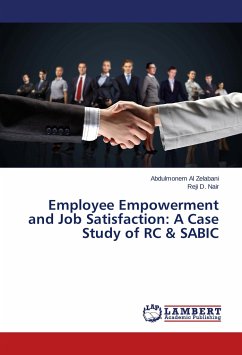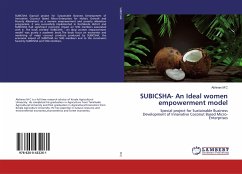
Power Distance, Empowerment and Performance
Versandkostenfrei!
Versandfertig in 6-10 Tagen
39,99 €
inkl. MwSt.

PAYBACK Punkte
20 °P sammeln!
Today, multinational corporations are increasingly conducting business globally, which has increased in scope due to the increasing complexity as the companies operate across national, cultural and social boundaries. The greatest challenge facing the corporations is to acknowledge the cultural differences in every host country and to manage the business cohesively to achieve set objectives. Current literature indicates that culture is an important determinant of organizational performance in host countries. Hofstede (1991),reported that power distance is the extent to which a society accepts a...
Today, multinational corporations are increasingly conducting business globally, which has increased in scope due to the increasing complexity as the companies operate across national, cultural and social boundaries. The greatest challenge facing the corporations is to acknowledge the cultural differences in every host country and to manage the business cohesively to achieve set objectives. Current literature indicates that culture is an important determinant of organizational performance in host countries. Hofstede (1991),reported that power distance is the extent to which a society accepts an unequal distribution of power in organizations within a hierarchy. He reported that subordinates in a high power distance culture are highly dependent on their superiors for direction and further suggested that employees manage their work according to what the managers stipulate. While, a firm operating in a low power distance country culture is likely to rely on high employee empowerment and consequently, the job factors will be positive and organizational performance will be high.












